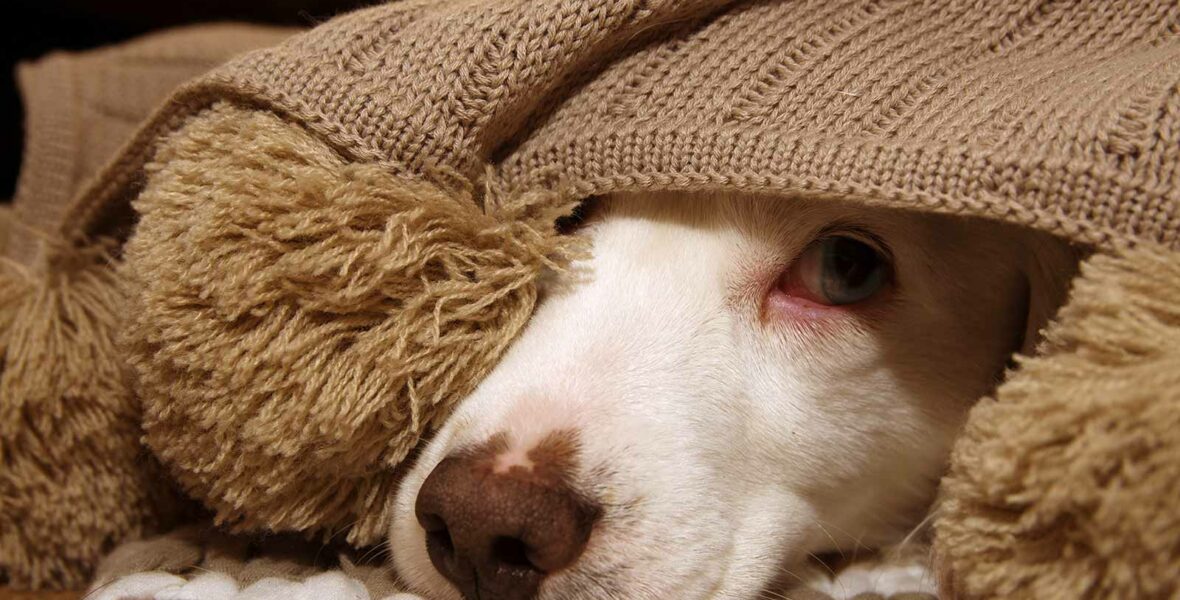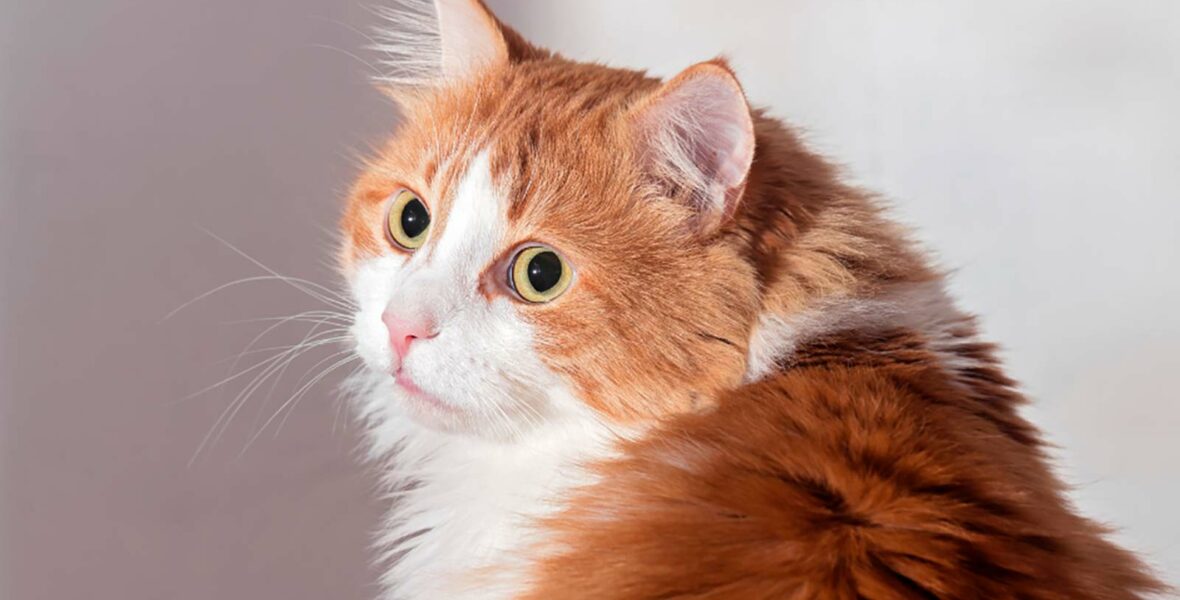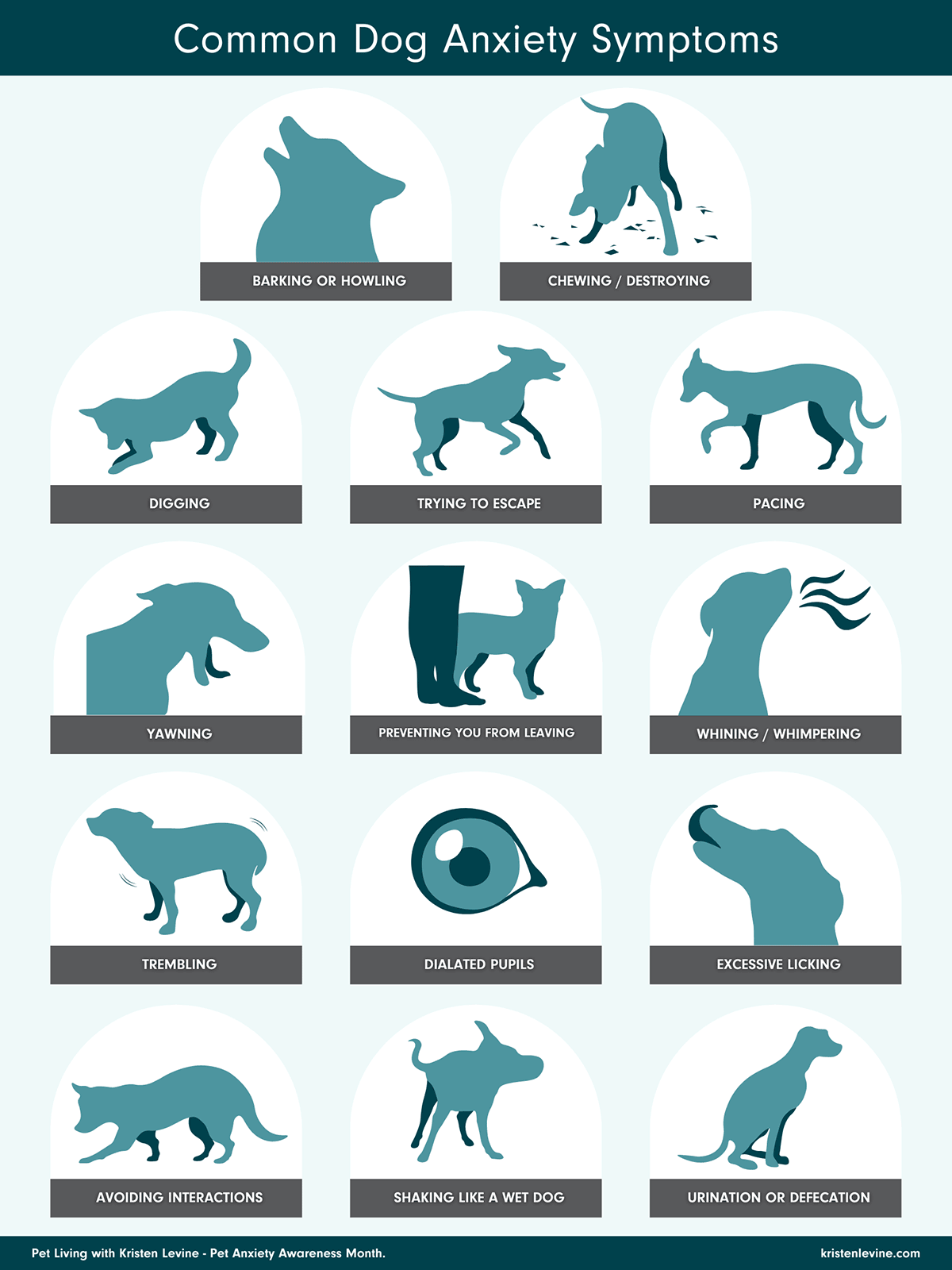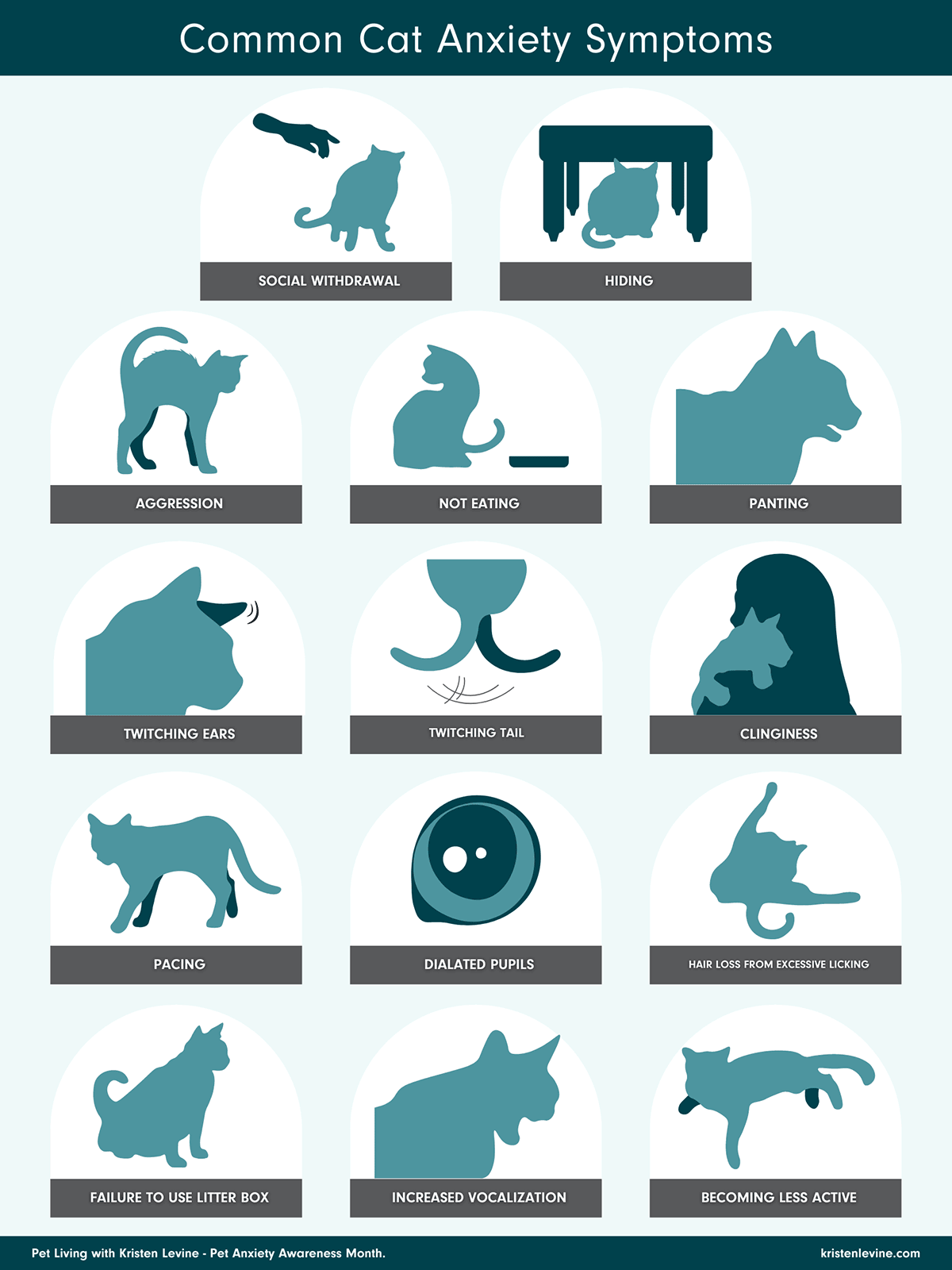Why Does Your Cat or Dog Have Anxiety?
Fear, anxiety, and stress are the result of a neuro-chemical reaction in a pet’s brain. It can be brought on by any number of situations, including a sudden change in their environment, past trauma, being left alone, certain medical conditions, and noises, such as thunder or fireworks.
A pet’s breed may also make them more disposed to suffering from anxiety. But many times, it’s impossible to know exactly why a pet is displaying signs of anxiety.
Although dogs may be more apt to display obvious anxiety symptoms, cats can suffer from anxiety as well. In fact, Veterinary Behaviorist Dr. Lisa Radosta says, “Cats have as much fear, anxiety, and stress as dogs in the home environment (but) cat owners are less aware of it because a hiding cat may not seem like a stressed cat to them.”
Dog Anxiety Symptoms

Anxiety symptoms in dogs are surprisingly varied and often include behaviors that you might not normally associate with canine anxiety. These include:
- Urination or defecation
- Barking or howling
- Chewing/destroying things
- Digging
- Trying to escape
- Pacing
- Yawning, lip licking, or air sniffing
- Attempting to prevent you from leaving
- Whining/whimpering
- Trembling
- Dilated pupils
- Excessive licking
- Avoiding interactions
- “Shaking it off” like a wet dog
If your dog is experiencing any of these symptoms, be sure to get help! Dogs with anxiety are truly suffering. Refer to the resources on the page and be sure to schedule an appointment with your veterinarian.
Cat Anxiety Symptoms

Cat anxiety symptoms are often more subtle than symptoms in dogs and frequently include:
- Hiding
- Not eating
- Social withdrawal
- Panting
- Dilated pupils
- Aggression
- Twitching tail
- Twitching ears
- Failure to use litter box
- Clinginess
- Pacing
- Hair loss from excessive grooming
- Increased vocalization
- Becoming less active
If you suspect your cat is experiencing anxiety, please refer to the resources below and be sure to schedule a visit to your veterinarian. No pet should have to suffer from anxiety!










